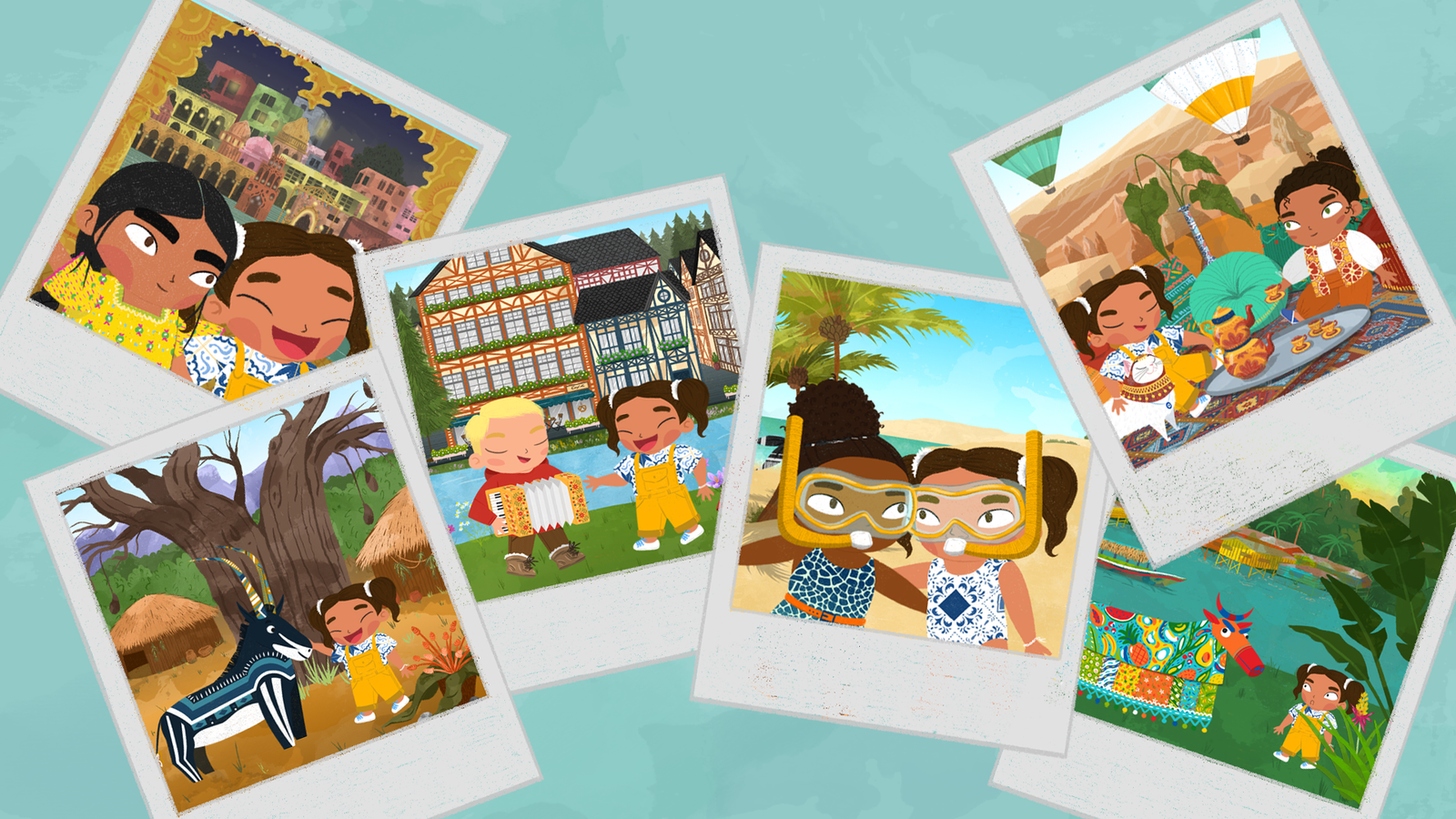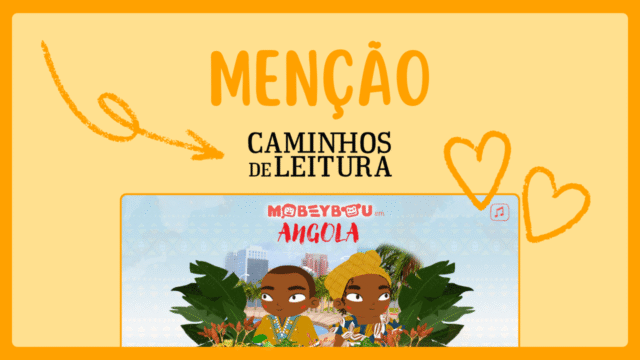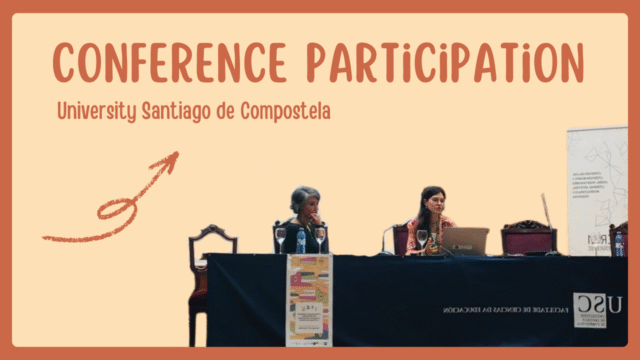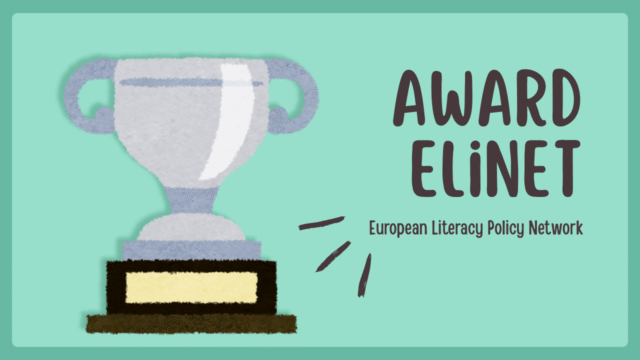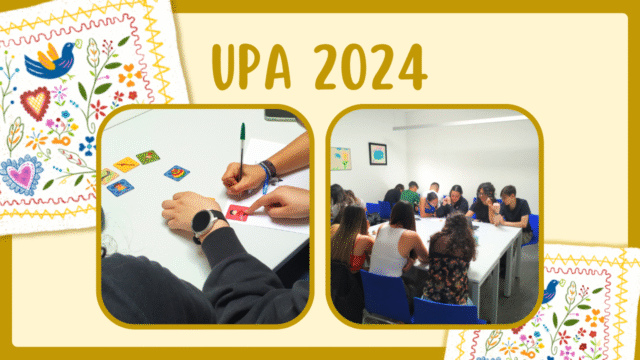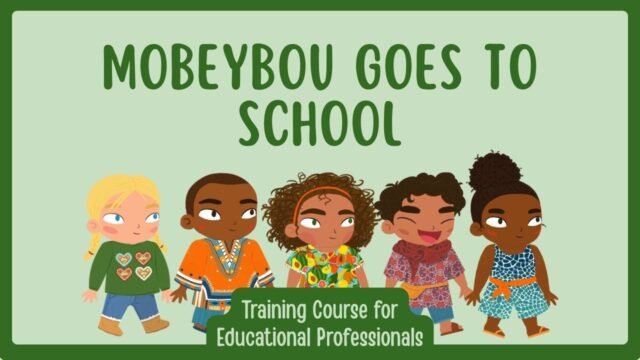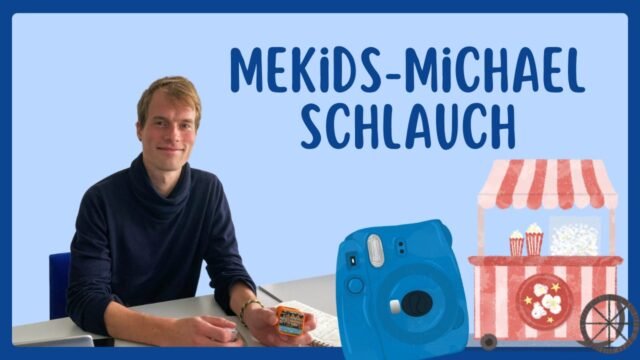We are delighted to share great news. The Reading Observatory has selected the story app Mobeybou in Angola for reading. This organization recommends works by evaluating the quality of the text, illustrations, graphic design, approach to innovative themes, and creativity.https://caminhosdeleitura.pt/sugestoes-de-leitura-2024/: Reading Observatory
II International Conference on Child Studies

Andreia Couto presented the conceptualisation of our concept: Converged Playful Learning. This occurred at the II International Conference on Child Studies. The conference was held at the University of Santiago de Compostela (Spain). The concept of Converged Playful Learning arose from observations conducted in Filipa Andrade’s classroom. These observations were with children aged 3 to 5. This concept combines technology and pedagogical experiences, promoting meaningful learning through play and interaction.
Thanks to Andreia for her excellent presentation. We appreciate all the participants for sharing and reflecting, which enriched our approach!

A Andreia Couto apresentou a conceptualização do nosso conceito: Converged Playful Learning, no II International Conference on Child Studies, realizado na Universidade de Santiago de Compostela (Espanha). O conceito: Converged Playful Learning resultou das observações realizadas na sala da Educadora Filipa Andrade com crianças de 3 a 5 anos. Este conceito une tecnologia e experiências pedagógicas, promovendo aprendizagens significativas através do brincar e da interação.
Obrigada Andreia Couto pela excelente apresentação e a todos os participantes pelas partilhas e reflexões que enriqueceram a nossa abordagem!

EU Literacy Award

We are pleased to share the progress and achievements of the MOBEYBOU-OUT project. It has been recognized by ELINET – European Literacy Policy Network as an example of best practices. This recognition highlights the significant impact of our materials. They contribute to the development of digital, linguistic, and intercultural skills in early childhood. Additionally, they help primary education.
Project Phases
We would like to remind you that the MOBEYBOU-OUT project was structured into two crucial phases during its initial implementation:
Mobeybou: Development of Tangible and Digital Materials: During this phase, we developed an innovative digital manipulative and a series of interactive digital narratives. The digital manipulative works with physical blocks that children can use to interact with digital content on a device. Each active block has specific animations that help tell a story, promoting a rich and interactive educational experience.
OUT: Empirical Evaluation: The second phase of the project focused on the practical evaluation of the developed materials. We observed and analyzed how children interacted with the tools and which skills were most influenced by the technology.


Collaboration and Recognition
The project involved the collaboration of a doctoral student from the Federal University of Paraná (UFPR), Brazil, and eight master’s students from various Portuguese universities, covering fields such as Electronics, Design, Communication, and Education. The impact and success of MOBEYBOU were recognized by ELINET – European Literacy Policy Network. This recognition represents a significant milestone in the development of educational resources tailored to the contemporary needs of children.
We remain committed to innovation and excellence in early childhood education. Follow our blog for more updates and news about the OUT project!

Mobeybou-OUT Premiado por Boas Práticas na Educação Infantil Intercultural e Tecnológica
É com grande satisfação que compartilhamos os progressos e conquistas do projeto MOBEYBOU, que foi reconhecido pela ELINET – European Literacy Policy Network como um exemplo de boas práticas.
Este reconhecimento veio destacar o impacto significativo dos nossos materiais no desenvolvimento das competências digitais, linguísticas e interculturais em crianças da educação infantil e do primeiro ciclo do ensino básico.
Fases do Projeto
Recordamos que o projeto MOBEYBOU foi estruturado em duas fases cruciais, aquando da sua implementação inicial:
Mobeybou: Desenvolvimento de Materiais Tangíveis e Digitais: Durante esta fase, desenvolvemos um manipulador digital e uma série de narrativas digitais interativas. O manipulador digital funcionava com blocos físicos que as crianças poderiam usar para interagir com os conteúdos digitais no dispositivo digital. Cada bloco ativo tem animações específicas que ajudam a contar uma história, promovendo uma experiência educativa rica e interativa.
OUT: Avaliação Empírica: A segunda fase do projeto focou a avaliação prática dos materiais desenvolvidos, onde observamos e analisamos como as crianças interagiam com as ferramentas e quais competências eram mais influenciadas pela tecnologia.
Colaboração e Reconhecimento
O projeto contou com a colaboração de um estudante de doutoramento da Universidade Federal do Paraná (UFPR), Brasil, e oito alunos de mestrado de várias universidades portuguesas, abrangendo áreas como Eletrônica, Design, Comunicação e Educação. O impacto e o sucesso do MOBEYBOU foram reconhecidos pela ELINET – European Literacy Policy Network.
Este reconhecimento representou um marco significativo no desenvolvimento de recursos educacionais adaptados às necessidades contemporâneas das crianças. Continuamos comprometidos com a inovação e a excelência na educação infantil. Acompanhe nosso blog para mais atualizações e novidades sobre o projeto OUT!

UPA 2024
Workshop at the University’s open day with high school students
University of Open Doors (UPA)
On April 2024 the University of Minho held a new edition of the Open Doors University (UPA). The event aims at presenting the University’s offer to future students. It showcases its educational offer through exhibitions, guided tours, workshops, and lectures. Various other dynamics are included.
In this context, we organized an activity. It involved a group of 11th and 12th graders from schools in the municipality of Braga and beyond. The students engaged in exploring the storyMaker in small groups, creating stories. We are amazed about their interest in the activity. In the end, each group presented their narrative. The students said they enjoyed the activity. They highlighted the sounds as positive points. They also found the bright colours attractive aspects of the StoryMaker.

Nos dias 18 a 20 de abril, a Universidade do Minho realizou uma nova edição da Universidade de Portas Abertas (UPA). O evento tem como objetivo dar a conhecer a oferta da Universidade aos futuros alunos, apresentando a sua oferta formativa, através de exposições, visitas guiadas, workshops e palestras, entre outras dinâmicas.
Neste contexto, desenvolvemos uma atividade com um grupo de alunos do 11º e 12º anos, de escolas do concelho de Braga e arredores. Os alunos exploraram o storyMaker em pequenos grupos e envolveram-se na criação de histórias. Ficámos surpreendidos com o seu interesse pela atividade. No final, cada grupo apresentou a sua narrativa. Os alunos disseram ter gostado muito da atividade e destacaram os sons e as cores vivas como pontos positivos e atractivos do StoryMaker.
Mobeybou goes to school
We are happy to share that our seminar/workshop on Digital literacy, multimodality and interculturality in the school curriculum: theories and practices mediated by a storytelling toolkit received 61 registrations and it will take place every Thursday, starting on January 2023 until May 2023.
Temos o prazer de partilhar que a nossa oficina de formação acreditada sobre literacia digital, multimodalidade e interculturalidade no currículo escolar: teorias e práticas mediadas por um conjunto de ferramentas de narração de histórias recebeu 61 inscrições e terá lugar todas as quintas-feiras, de Janeiro de 2023 até Maio de 2023. Follow us on Instragam and Facebook
Mekids
It was a pleasure to host Michael Schlauch from the University of Bolzano || Italy

Doing research that relates to the problems of educational practice is the challenge of our time. I came here on a research visit to work with Dr. Cristina Sylla and Dr. Maitê Gil to see how it’s done at the narrative learning project “Mobeybou” here in Braga.
Originally from Germany, I am a doctoral candidate at the Free University of Bolzano, Italy. There I conduct an educational design research project called “Media Education with Kids through Interactive Digital Storytelling” (MEKIDS). My goal is to use digital storytelling to enable children to be creative and reflect on a variety of subjects. For that reason I am developing the “Fantastinomio”, a simple picture-based digital storytelling environment that can be customized by the teacher. During my stay we adapted the Fantatinomio to the needs of a Portuguese elementary school. After long periods of remote learning and lockdown teachers pointed out the urgency to create an intervention on social emotional learning. Children participated in the design process by creating all the drawings that equipped this particular version of the Fantastinomio. Overall I am surprised at how much we have managed to do in a few weeks. The collaboration with Mobeybou has taught me that research is most successful with enduring mutual relationships with schools, teachers and pupils. This is something I will give particular attention to on my return to Italy.
